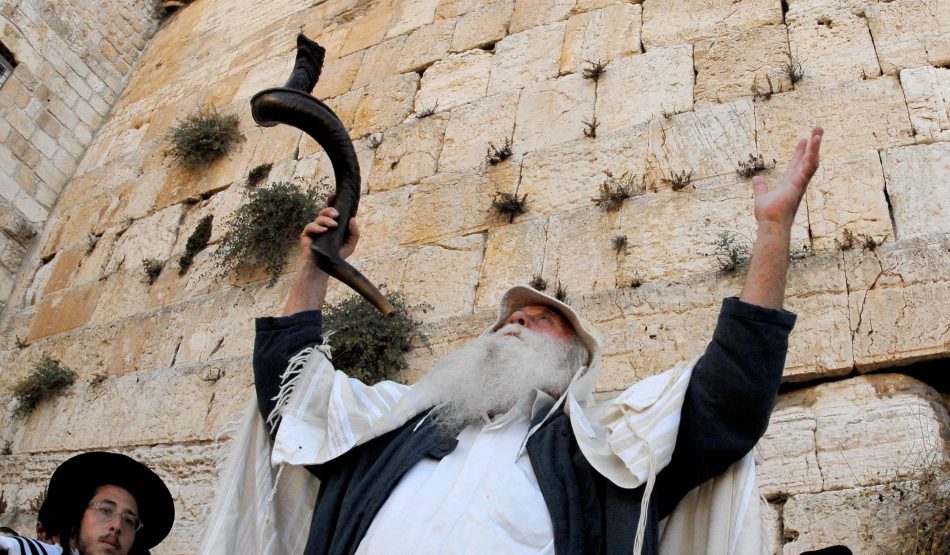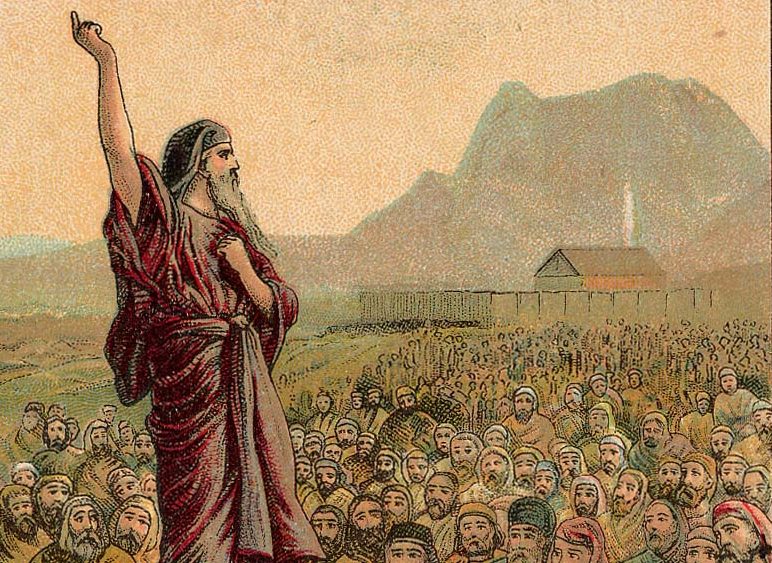On Yom Kippur, we attain a glimpse of our lives, our choices and our relationships to HaShem from a Divine perspective that grants us a more holistic view of the larger story in which we participate.
When we experience something positive in our lives, we generally praise the Kadosh Barukh Hu by saying, “Blessed is He Who is good and does good.” When faced with a negative occurrence, however, we say, “Blessed is He Who is a true Judge.” Our Sages teach that in the future we will say “Blessed is He Who is good and does good” even regarding the tribulations we experience. When we look back and see the entire story from a Divine perspective, we realize that every seemingly negative situation – both in our personal lives and in our collective national life – has actually contributed to HaShem’s plan for bringing all of Creation towards a Divine goal of total good. We will ultimately understand how every perceived misfortune and disaster that befell us was actually a necessary point on the road to the future goal in which all humankind will joyfully connect to their deepest and truest selves through the vehicle of a Hebrew Kingdom and Temple in Jerusalem.
This higher understanding of how even the seemingly negative is actually a necessary component of the greater ultimate positive also holds true for every transgression an individual commits. Although we possess the free choice to do other than that which the Torah instructs, we are unable to actually oppose HaShem’s Will or undermine His plan. Even our transgressions are ultimately recycled back into the Divine plan and contribute to the goal towards which history is always moving.
While this could potentially be misinterpreted as a license to sin, it must be clarified and understood that transgressions actually create a feeling of distance from HaShem, causing alienation and spiritual anguish, sometimes even manifesting as physical ailments. But when one sincerely regrets his wrongdoings and resolves never to repeat them, he is forgiven and even his past sins are then put towards future good.
Yom Kippur is a day of spiritual recharge and transformation when the light of the World-to-Come is figuratively shining into our world, turning our darkest deeds from the past into light. By plugging ourselves into the expanded consciousness of Yom Kippur through the proper acts, thoughts and tefillot prescribed for the day, we can receive – and be transformed by – the day’s all encompassing light.
Yom Kippur is essentially a mikvah in time. According to Torah Law, when a person immerses in a mikvah — a purifying ritual bath — there can be absolutely nothing between his skin and the water. The mikvah’s waters represent G-D’s Divine Oneness and when one enters into a mikvah, he is essentially immersing himself back into that all encompassing Oneness, simulating the experience of existing within the greater infinite Whole we call HaShem. In the mikvah, we become one with the waters, completely absorbed, submerged and surrounded. By immersing our bodies in the water, we express our desire to experience our souls merging back into the Oneness of HaShem. We acknowledge that He is our context and essence and that nothing at all can ever separate us from Him.
We exist within HaShem in a similar sense to the existence of an idea within the mind of its thinker. A major difference between our relationship to G-D and that of an idea to its thinker, however, is that a thought has no free choice whereas we essentially do. Yet at the same time any choice we make still remains within the context of HaShem and His plan for this world. While, from our limited human perspectives, we enjoy freedom of choice, the Kadosh Barukh Hu still remains in absolute control. We are free to disobey and to do other than His Will but we are not able to oppose that Will or undermine His plan. And while a person could understandably wonder what difference our choices actually make, the truth is that our real choice is whether to become HaShem’s conscious partner or His unconscious tool.
We can choose to consciously do G-D’s Will and actively contribute to His plan in a way that brings us to experience the ecstasy of our unity within Him. Or we can choose to oppose His Will and through our own choices unknowingly fulfill His plan. While the first choice empowers us to live superhuman lives, the second option denies us the awareness of our inseparable connection to HaShem and instead causes us to feel estranged from our Divine Source.
The purpose of a mitzvah is to manifest HaShem’s Ideal and express our true inner selves as unique sparks of the Divine in this world. Transgressions, on the other hand, promote illusions of separateness that create painful feelings of alienation and anguish. We can only actively choose to disobey G-D’s Will when we mistakenly believe that we exist separate from Him. The erroneous belief that each of us exists as an independent entity separate from one another is itself the true punishment an offender suffers as it causes him to feel isolated from other people, estranged from his inner self and disconnected from the context and essence of his very existence.
The awareness of HaShem as the infinite Whole in which we all exist allows us to appreciate not only His Divine Oneness but also our special relationship to Him. And although we can theoretically choose do other than His Will, the glimpse of the Divine perspective we receive on Yom Kippur strengthens and inspires us to cleave to His Torah and its statutes as the healthiest and most natural means for expressing our inner selves and fulfilling our purpose of manifesting His Ideal.
[huge_it_share]






